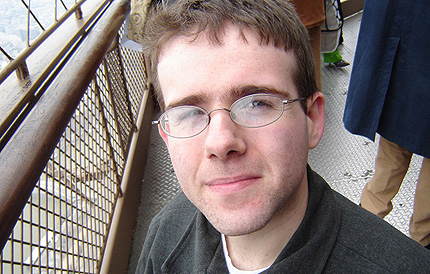 My name is Shaun. I'm an assistant professor at the University of Maryland Baltimore County where I teach classes, mentor students, and conduct research. I earned my bachelor's and master's degrees in computer science at the University of Massachusetts, and then earned my PhD in information science at the University of Washington. I started working on research as an undergrad-my first research project was using computer image processing techniques to create a searchable index of George Washington's handwritten letters. I also worked on projects related to computer animation, video games, and technology for the classroom.
My name is Shaun. I'm an assistant professor at the University of Maryland Baltimore County where I teach classes, mentor students, and conduct research. I earned my bachelor's and master's degrees in computer science at the University of Massachusetts, and then earned my PhD in information science at the University of Washington. I started working on research as an undergrad-my first research project was using computer image processing techniques to create a searchable index of George Washington's handwritten letters. I also worked on projects related to computer animation, video games, and technology for the classroom.Outside of school, I've held a number of computing-related jobs and internships. I designed websites for a web design firm, hunted for software bugs at Microsoft, and developed new mobile device technologies at Intel.
I have a physical disability that affects my limbs and made me rather short in stature. I type with one hand and use Sticky Keys to help me type. I also use adaptive driving equipment and keep a lot of step stools around the house. Luckily, I can still use a computer quite well with my disability.
If you're thinking about a career in computing, you should learn about the different types of work that computer scientists do. Learn about programming and the different types of programming tools. There are some great online resources for learning about programming, such as Codecademy, Khan Academy, and Udacity. However, computing isn't just about programming. You might find yourself interested computer-based art, 3D modeling and design, or computer music. See what's out there, and you might find something that really interests you.
A lot of young people aren't sure what they want to do in their career. It's important to keep an open mind, to try new things, and find something that you really enjoy. When learning about computing, it's important to be patient and not give up too early. Learning to write computer programs is like learning a new language or a new way of thinking. It takes time and patience, but you can do it.
These days, many people use computers to read websites, listen to music, watch videos, and talk with people online. But computers are also powerful tools for being creative. Using your computer and free or inexpensive software, you can write stories, create art, make music, record and edit movies, and write apps or video games. Don't just think of the computer as another TV-you can use it to make something!